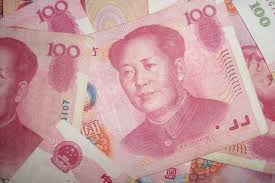A report from Zhongtai Securities says China in on track to spur growth in consumer lending in order increase consumption demand in the domestic economy, given the structure of the excess savings growth witnessed during the Covid pandemic.
Chinese policymakers have made “restoring and expanding consumption” a top priority, following a decline in consumer activity and an unchecked rise in excess saving levels in the wake of the Covid pandemic.
Figures from the Chinese central bank indicate that renminbi deposits increased by 15.39 trillion yuan in the first quarter of 2023. This included an increase in household deposits of 9.9 trillion yuan, accounting for 64% of new deposits.
According to analysis from Citic Securities, Chinese households have accumulated excess savings of 10.8 trillion yuan since 2019. The contribution of declining consumption to these excess savings has been approximately 4.9 trillion yuan, while the contribution of declining real estate sales was around 3.0 trillion yuan, and the contribution of wealth management returns was about 2.6 trillion yuan.
A report from Zhongtai Securities points out that it is unlikely that a direct reduction in the excess savings of households can support a rebound in Chinese consumption as prioritised by policymakers.
“There is limited space for releasing savings for consumption,” said the report led by Zhongtai Securities chief banking analyst Dai Zhifeng (戴志锋).
“The population structure for excess savings is mainly from high-income groups, and any increase in the consumption trends of high-income groups is limited.
“Middle and low-income groups have some room for consumption, but this depends on the recovery of employment and the intensity of relevant consumption support policies. Credit pricing and consumer subsidies for low-income groups could be a starting point.”
For this reason, Dai foresees a role of increasing importance for consumer credit in driving growth in China’s domestic consumption levels.
“Consumer credit is expected to become an important source of funds for consumption,” Dai writes. “From a long-term perspective, the overall debt burden of household has marginally improved, and there is still room for leverage, while the penetration rate of domestic consumer finance remains low.
“In the short-term, willingness to consume has rebounded to varying degrees after the pandemic, both domestically and internationally. Domestic consumption is slowly recovering, and consumer loans are expected to usher in a turning point for the recovery of consumption.”
Dai estimate that narrowly defined consumer loans will increase by around 1.4 trillion yuan in 2023, calculated based on the ratio of consumer loans to retail sales in previous years.




